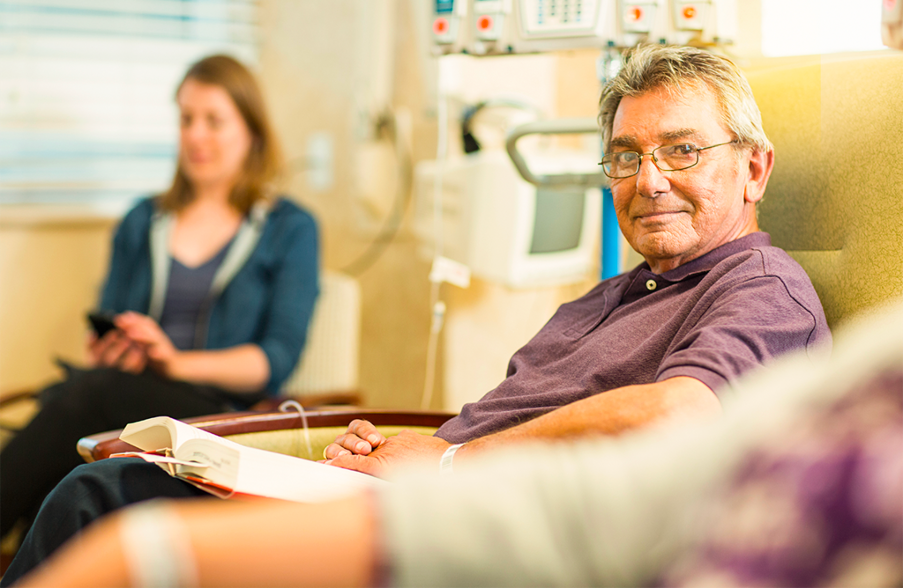
Project Optimus, introduced by the FDA in 2021, marks a significant shift in the approach to Phase I oncology trials, placing a strong emphasis on dose optimization and patient-reported outcomes. Moving away from the traditional maximum tolerated dose (MTD) approach, it aims to improve patients' well-being by evaluating different dosages comprehensively and reducing adverse effects.
 Project Optimus Making Waves Across Regions
Project Optimus Making Waves Across Regions
This article highlights key insights from thought leaders Professor Jayesh Desai (Australia), Professor Do-Youn Oh (Korea), and Professor Pan Hongming (China). In a dynamic virtual discussion with IQVIA's oncology specialists, they shed light on the regional outlook of FDA's Project Optimus, unraveling its significant impact and promising opportunities.
Project Optimus holds significant importance for diverse patient populations, particularly in Asia, where its relevance is pronounced. The initiative brings forth numerous positive aspects alongside inherent challenges in this region. One cannot overlook the favorable aspects of Project Optimus, as it ultimately revolves around prioritizing patients and assessing their tolerance to toxicity and overall tolerability over an extended duration.
Each thought leader offered valuable perspectives on the implications and opportunities presented by this important change.
Professor Pan Hongming recognizes Project Optimus as a pivotal milestone in optimizing treatment strategies for gastric cancer patients. He specifically underscores its significance in shaping the future of dose design in China, using the example of Apatinib, a cancer treatment drug.
There is a significant difference between the maximum tolerated dose of 850mg Apatinib in China and the 250mg Apatinib typically used in clinical practice. Only about 20% of patients can tolerate the higher dose, making the project an important step towards optimizing treatment for gastric cancer.Professor Pan
The example highlights the notable disparity between the maximum tolerated dose (MTD) and the commonly used dosage in clinical practice in China, reflecting the importance of Project Optimus in shaping the country’s healthcare for patients.
Meanwhile, Professor Do-Youn Oh believes conducting the optimization trials is very important and of immense value not just in Asia Pacific, but globally.
Trial design can be very complicated, with multiple dosing schedules, cohort, tumor type, and within that scheme, to add on dose optimization purposes, it can be difficult and challenging.Professor Do-Youn
Despite the complexities involved, Professor Oh believes that it is feasible to incorporate the dose optimization design into the existing study schema in Korea. She acknowledges the complexity of the current Phase 1 trial design, which includes multiple dosing schedules, cohorts, and tumor types, and highlights the positive outlook shared by investigators in the region.
Professor Jayesh Desai raises an important point regarding the existence of several drugs in the market where the regulatory-approved dosage may not align with the optimal dose for patients. In such cases, clinicians may opt to reduce the dosage for the benefit of their patients.
However, Professor Desai expresses concerns about how regulators in different regions will evaluate the information derived from Project Optimus, as it could have repercussions on patient reimbursement.
If two doses of a drug are tested as part of Project Optimus and the higher dose is the one that has more data and has the approval data globally, but regulators may choose to approve the lower dose due to cost considerations and based on the dose optimization data, both dose levels look similar. Will this be an issue for us clinicians especially in this part of the world where cost is actually a big issue including in reimbursement? This is something we need to be a little bit fearful of as well.Professor Desai
 Is Asia ready for Project Optimus?
Is Asia ready for Project Optimus?
In Asia, the implementation of Project Optimus presents both positive aspects and inherent challenges. However, the thought leaders acknowledge that this patient-centric approach is crucial in the context of Asia's diverse patient populations. As we delve into the regional outlook of Project Optimus, it becomes evident that Asia is a particularly relevant and promising region for its adoption.
Today’s Clinical Trials is Tomorrow’s Standard of CareDespite the challenges and varying perspectives, the thought leaders unanimously recognize the importance of Project Optimus and the value of trial medicine in advancing cancer treatment. The thought leaders emphasize the importance of collaboration, adaptability, and aligning with the goals of Project Optimus. Embracing this initiative empowers drug developers to navigate complexities, contribute to oncology research, and forge a future where trial medicine is not just essential, but truly exemplary medicine.
IQVIA Biotech Supports Drug Developers in Dose OptimizationIQVIA Biotech provides adaptable clinical solutions to help drug developers optimize doses and ensure effective treatment delivery to patients worldwide. With over 20 years of experience in clinical trial organization for biotech firms, our expert team employs advanced analytics and data to establish valuable connections and accelerate the development of innovative medical treatments. Learn more at iqviabiotech.com.
Catch the discussion online here.
